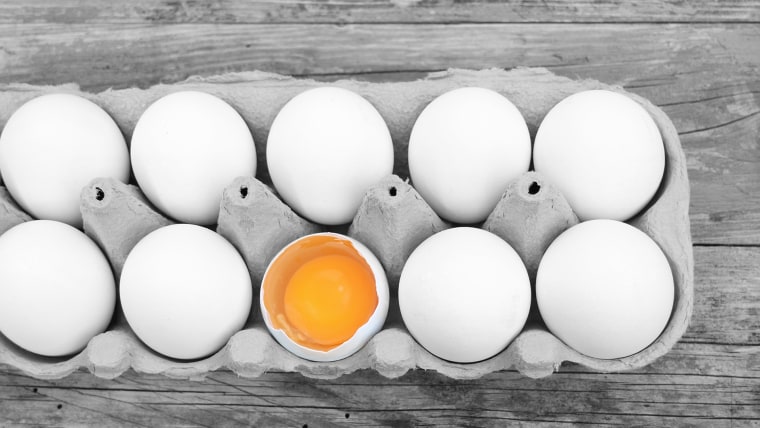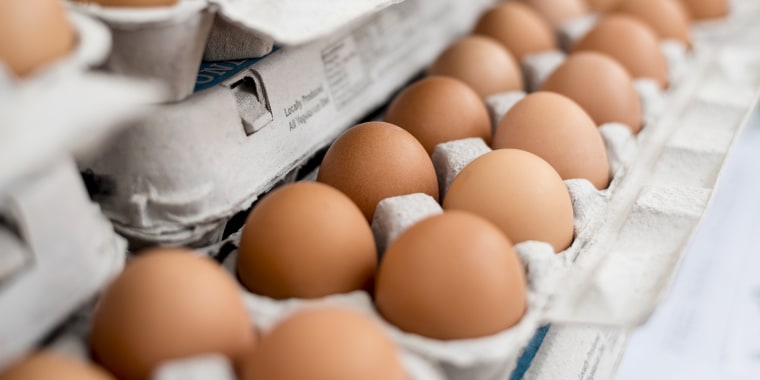We know eggs aren't only delicious, but they're nutrient-packed powerhouses that make our mornings much sunnier ... or over-easier!
But what do the yolks' soft yellows, vibrant golds and orange-reds really mean when it comes to the relative healthiness or taste of an egg?

Despite a common misconception that brown eggs may be healthier — or more natural — than white ones, the colors of the shells don't mean much when it comes to nutrients. The truth is, white eggs are laid by hens with white feathers and white ear lobes, while brown eggs come from hens with brown or red feathers and red ear lobes.
Whether you feel the need to shell out the extra cash for brown eggs, or are convinced removing eggs from the carton is left to right is far better, different colored eggs all have the same basic nutrients on the inside.

But what about those yolks, folks?
Research conducted by the United States Department of Agriculture has demonstrated that the color of the yolk also does not affect the egg's nutritive value. All yolks contain less water, more fat and a little less than half of the protein as the egg's white. Most of the egg's vitamins and minerals, however, are found in the yolk. These include iron, vitamin A, vitamin D, phosphorus, calcium, thiamine and riboflavin.
What the hen is fed, however, does affect egg yolks' varying hues. Bonnie Taub-Di, RDN, and author of "Read it Before You Eat It - From the Label to the Table," compared the way chicken feed affects yolk color to how eating beets might make human urine turn slightly pink. Similarly, taking iron supplements can make bowel movements turn dark brown or even black.
"A hen’s diet impacts the color of the yolk in her eggs. If she’s eating plants that have yellow-orange pigments, then the yolk can take on a more orange color. If her feed is composed of corn or wheat, the color of the yolk could be a more pale color," Taub-Dix told TODAY Food.
While egg yolk's shade may not impact its health value, many chefs, farmers and home cooks swear that the yolk's color does actually affect the flavor of the egg — and the dish it's used in. The more vibrant the shade, the more vibrant the taste, they say.
Le Coq Rico, a restaurant in New York City, is known for its egg-centric brunch, which allows diners to choose exactly which types of eggs they would like to eat. Its general manager, Anthony Battaglia, told Extra Crispy how eggs have different flavor profiles, and believes a bright orange yolk has a richer-tasting quality. If you're on the hunt for better-tasting eggs, Battaglia recommends closely examining how those birds were raised and what they eat.